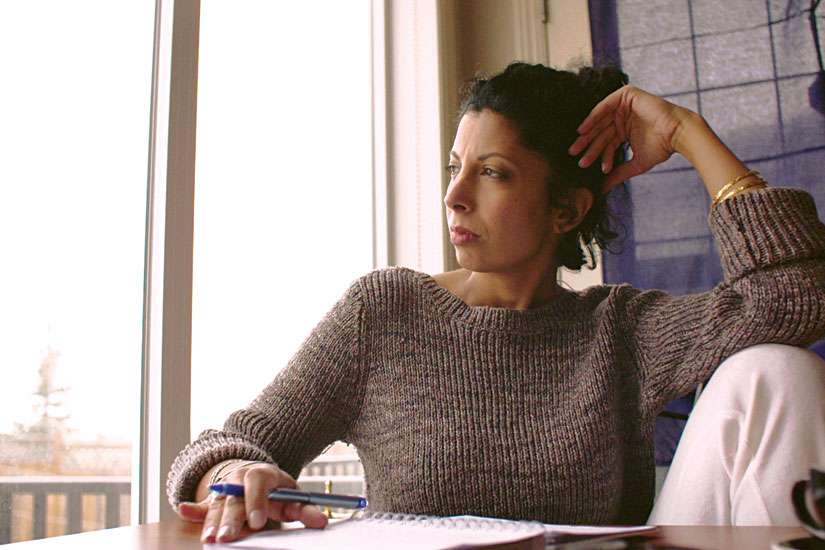HUSH is a film by Mighty Motion Pictures that views through both lenses the controversial field of research around abortion’s health risks. Canadian director and pro-choice advocate Punam Kumar Gill collaborates with Canadian producer and pro-life advocate Joses Martin to investigate the long-term effects of having an abortion.
They said the film is not about pro-choice or pro-life. It’s about being pro-information.
“I, too, was guilty of allowing my bias to overshadow my ability to listen and to identify a women’s issue when I heard it,” Gill says in the film.
“Sure, I’m pro-choice but before that, I’m a woman and a human being. So how can we get to a point where answers around abortion, an elective medical procedure, when we can’t even have a conversation?”
Before the film discusses the scientific research behind the physical and psychological effects for women who have abortions, the first 10 minutes had to address the hostility people have surrounding abortion.
“Nobody wanted to talk to us because they assumed the worst,” Martin told The Catholic Register. “Even with individuals who are not particularly related to (abortion issues), like cancer organizations, what do they have to do with abortions, in general? But when it comes to a political topic like this... there’s a lot of defensiveness that we didn’t even expect.”
Martin said he and Gill spent a considerable amount of time working together to actively set aside their personal positions in order to get to the truth.
He said that for a long time, abortion has forced people to a narrow conversation of right and wrong.
“It’s about how and what we learn from the studies that do show some risks.
Why does one study show risks and one study doesn’t?” he said. “It seemed that once we dug into the research it was much more complicated than that because it wasn’t just a simple yes or no answer for all the things that we’re looking at.”
Throughout the film, Gill talks to doctors, scientific researchers and health organizations.
Eve Silver is a medical research analyst featured in the film. For more than 15 years she has studied the links between abortion and breast cancer. She has also had multiple abortions, which later led to 11 miscarriages and breast cancer twice.
“Most women don’t know that the breast is an organ, like the heart, the liver, the kidney,” Silver told The Register. “It’s just not matured until 38 weeks after pregnancy.”
Because of this, Silver said it is detrimental to the woman’s reproductive health to terminate a pregnancy. It interrupts the natural production of hormones that help breasts mature and makes them much more prone to developing cancerous cells.
Abortions also leave the woman’s reproductive system vulnerable to cervical damage and uterine wall damage that leads to future miscarriages, premature births and sterility.
Silver said there is a lot of complicated science in women’s reproductive health and she commends the film for breaking down the medical research for people. However, Silver said the HUSH’s power comes from the first-hand testimonies of women who have gone through it.
“They created an incredible product and really the most awesome thing I’ve seen in a long, long time as far as medical research and having the individuals that were so important to the film right there,” she said.
“There’s no arguing when you see these people speaking.”
In the film, Gill sat down at a roundtable discussion with women who have experienced health issues after an abortion. Many talked about the medical complications they experienced, but they also discuss the psychological distress after their abortions: depression, eating disorders, alcohol and drug abuse and suicidal tendencies.
“Personally, I have met a lot of post-abortive women and I have not met one that has not had medical repercussions as a result of their abortion,” said Tasha Deschambault.
Deschambault is the film’s tour co-ordinator. She had two abortions at the age of 19. When she was ready to start a family, she suffered premature labour multiple times. Her son was born three weeks premature and has had lung issues since birth.
“When I watched the film, it was when I realized that my son’s health issues were a direct result of my previous abortions and I had no idea,” she said.
“That’s a part of the reason why I really got behind the film because I thought other women should know, when they’re making their decision, what they’re actually choosing.”
Deschambault said she wasn’t given any information about the risks involved with an abortion. She was told it would take a couple of days to recover and life will go back to normal. But for her, life was never normal again.
She and a group of women advocates have been travelling for the past three months to university campuses across Canada to screen the film.
“We thought that the particular audience that would be able to see that there truly is no bias... would be the academic society,” said Deschambault. “They would be able to take a look at the research for themselves and see that the film is exactly what it claims to be, which is pro-information.”
Mighty Motion Pictures is hoping for a wide release by fall. Visit hushfilmtour.com.

